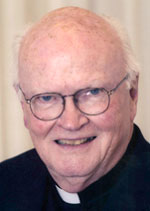I remember using the word “mendacity” in a passing comment during a lecture on contemporary business ethics; I may even have used the word “mendacious” in describing an auditor’s complicity in filing a false income statement. In any case, a mid-level manager later came up to me and said, “You used a word that I never heard before — ‘mendacity’ — what does it mean?”
My immediate reaction was to admire his honesty in acknowledging his modest vocabulary deficit. Some others in the audience probably didn’t know the meaning of the word either, but chose not to let on.
We’re not expected to declare to the world our ignorance of things our conversation partners presume that we know and understand. But to shade the truth in speech we originate, and, of course to tell an outright lie leaves us open to the charge of mendacity.
A column by Don Aucoin in The Boston Globe Sunday magazine a few years ago highlighted the New York state attorney general’s disclosures of the extent of fraud committed by Wall Street investment banking firms.
“The country seems to be on something of a lying binge,” wrote Aucoin. “The simple act of telling the truth seems unaccountably hard for a lot of people these days.” His point was that “the simple act of telling the truth” is a solution to the problem of corporate fraud.
“The tide of corruption at Enron, WorldCom, Tyco, Arthur Andersen, ImClone, et al,” he wrote, “represents a profound breach of the social contract and persuasive evidence of a systemic, robber-baron ethos at play — one that, if unchecked, could threaten the livelihoods and retirement dreams of millions of working stiffs.” The way to check it would be, “the simple act of telling the truth.”
In giving advice to Catholic Church officials trying to work their way through the clergy sex-abuse scandals of 2002, Margaret O’Brien Steinfels, former editor of Commonweal, said simply, “Tell the truth.” And she added: “We must pursue a form of what Vaclav Havel, president of the Czech Republic, called ‘living in truth’ in an 1978 essay.”
Havel saw “living a lie,” as a condition, said Steinfels, “so subtle, and so unconscious that those who live a lie may not fully grasp the ordinary subterfuge in which they carry on their daily life.”
The subtlety of it all has to be respected by everyone in church and state, business and government — wherever human persons communicate. Living in truth implies a serious responsibility to understand the meaning of mendacity, which, of course, is veracity’s opposite number.
A lawyer friend told me not long ago that veracity is so much on his mind that he challenges young associates who say, in written or oral communication with clients, “It’s almost ready,” when, in fact, not one word of the brief or memorandum has found its way onto paper.
“Veracity is a crucial but neglected virtue,” said this senior partner. “It’s easy to start with small untruths, but that can escalate into exaggeration of the number of hours worked (and billed), and on to outright misrepresentations.”
Avoiding mendacity is one way each of us can help change the world.
—
Jesuit Father Byron is university professor of business and society at St. Joseph’s University, Philadelphia. Email: wbyron@sju.edu.
PREVIOUS: Don’t be holier than the pope
NEXT: Fear is good in some instances, but not when it stunts our potential



Cogent and awesome!